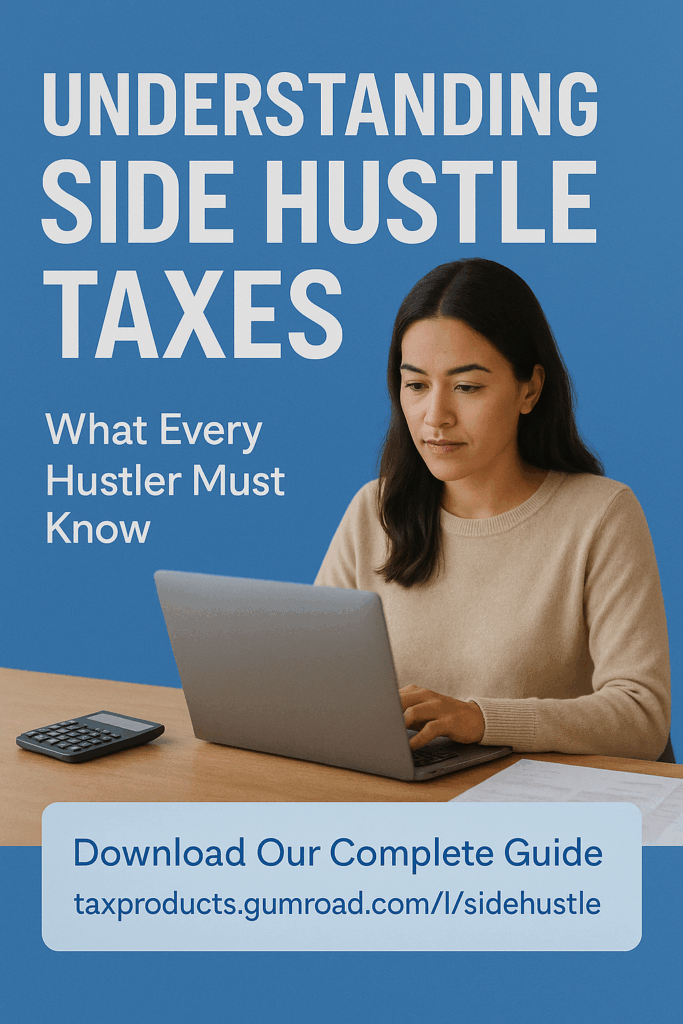
Understanding Side Hustle Taxes: What Every Hustler Must Know
If you’re freelancing, driving rideshare, designing logos, or monetizing content online—you’re part of the growing gig economy. But here’s the reality: side hustle income is taxable. The IRS doesn’t care if it’s your “just-for-fun” gig or a serious income stream. If money changes hands, taxes are involved.
Let’s break down what that means for your wallet, your filing strategy, and how to avoid expensive missteps.
What Counts as Taxable Income
- Payments from freelance work, design, consulting, etc.
- Rideshare, delivery, or task-based gig platforms
- Earnings from Etsy, Gumroad, or online marketplaces
- Content monetization—sponsored posts, affiliate links, ad revenue
- Even tips and cash gigs must be reported
Pro Tip: Didn’t get a 1099? Doesn’t matter—you still have to report it.
Key Forms and Deadlines
- Form 1099-NEC: Issued by clients who pay you $600+
- Schedule C: Used to report income and business expenses
- Schedule SE: Calculates self-employment tax (15.3%)
- Quarterly estimated tax payments: Due April 15, June 15, Sept 15, Jan 15
Track Like a Pro
Start with a separate business bank account. Use tools like QuickBooks Self-Employed, Wave, or even a solid Google Sheet. Organize digital receipts, invoices, and payment confirmations in labeled folders. Good records are your audit-proof armor.
Common Deductions
- Phone and internet (business use portion)
- Software (Canva, Dropbox, QuickBooks)
- Home office (if exclusively used for work)
- Business travel, meals, and subscriptions
Only claim what’s ordinary, necessary, and well-documented. No fluff.
Why This Matters
Failing to report income can lead to serious penalties—up to 25% of the unpaid tax, plus interest. Worse, it may trigger an audit, especially for cash-heavy or inconsistent filings.
Want the Full Tax Strategy?
We’ve compiled everything into one actionable guide: The Complete Guide to Building and Taxing Your Side Hustle Right. It’s packed with deductions, forms, examples, and step-by-step strategy for managing your freelance taxes with confidence.
Final Thoughts
Being your own boss means owning your financial responsibility. With the right systems and knowledge, tax season doesn’t have to be scary. Start tracking, stay organized, and use your deductions wisely.
Disclaimer
Disclaimer: The information provided in this blog post is for informational purposes only and should not be construed as legal, tax, or accounting advice. Tax situations are often complex and highly specific to the individual or business. You should contact a qualified tax expert directly to discuss your particular circumstances. Nothing herein is intended to, nor does it, create an attorney-client or advisor-client relationship. For individual guidance, please contact us directly.


